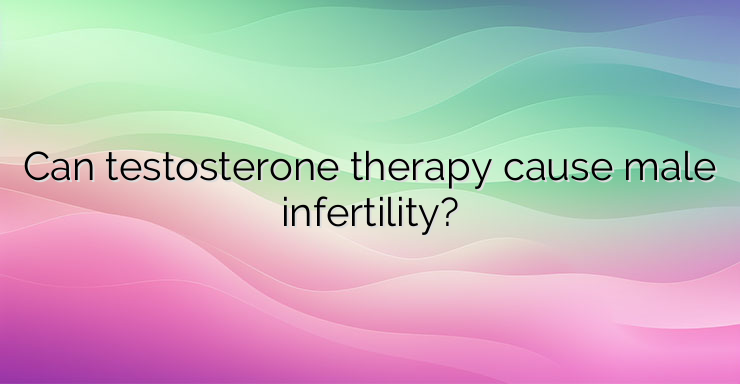The use of testosterone replacement therapy and the use of anabolic-androgenic steroids is increasingly common in young men. These two therapeutic approaches can suppress the function of the hypothalamic-pituitary-gonadal axis, leading to a decrease in spermatogenesis. Discontinuation of this therapy may be followed by a spontaneous, effective recovery of normal spermatogenesis, providing sufficient time for these processes. However, in some patients, no recovery of normal spermatogenesis is observed or a longer period of time is required for recovery before effective fertilizing of spermatozoa is achieved. The natural decline of serum testosterone levels and the treatment of hypogonadism require the introduction of testosterone replacement therapy. Anabolic-androgenic steroids are also among the commonly used agents for multiple reasons in men of various age groups. However, this often leads to hypogonadism. The use of both testosterone replacement therapy and anabolic-androgenic steroids can lead to suppression of the hypothalamic-pituitary-gonadal axis, leading to impaired spermatogenesis and potential infertility. Spontaneous recovery of spermatogenesis after discontinuation is possible, but may take from several months to several years, and in some cases may remain permanently impaired. Normal spermatogenesis depends on effective regulation mechanisms of the hypothalamic-pituitary-gonadal axis. These processes are controlled by the pulsatile release of gonadotropin-releasing hormone – GnRH from the hypothalamus. This affects the pituitary gland and causes the release of gonadotropic hormones. Luteinizing hormone – LH, which is released from the pituitary gland, stimulates the Leydig cells in the testicles and they begin to produce testosterone. This also leads to the production of insulin-like growth factor 1 – IGF-1 by the testes, which has an important role in the regulation of the LH receptor in Leydig cells, the synthesis of steroid hormones and the maturation of spermatozoa. The follicle-stimulating hormone – FSH, which is released from the pituitary gland, stimulates the Sertoli cells in the testicles, which supports the differentiation and maturation of spermatogonia. Both FSH and the maintenance of high levels of intratesticular testosterone – ITT – at values ??50-100 times higher than serum in response to LH are key to ensuring normal spermatogenesis. Regulation of the hypothalamic-pituitary-gonadal axis is provided by feedback suppression. Endogenous testosterone directly inhibits the release of gonadotropin-releasing hormone and LH at the hypothalamic and pituitary levels, respectively, leading to a decrease in downstream testosterone production. Testosterone also indirectly regulates gonadotropin secretion through estrogen,obtained from the conversion of testosterone in peripheral tissues under the action of the aromatase enzyme. Estrogen has a more substantial effect on LH secretion than FSH, although additional feedback inhibition of FSH is mediated by inhibin B secreted by Sertoli cells. Inhibin B levels are important for spermatogenesis – patients with defects in spermatogenesis have lower levels of inhibin B. References: https://www.ncbi.nlm.nih.gov/pmc/articles/PMC4854084/


Leave a Reply